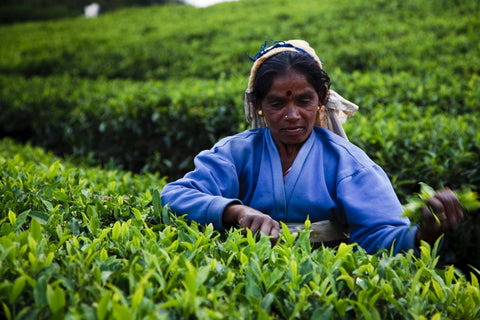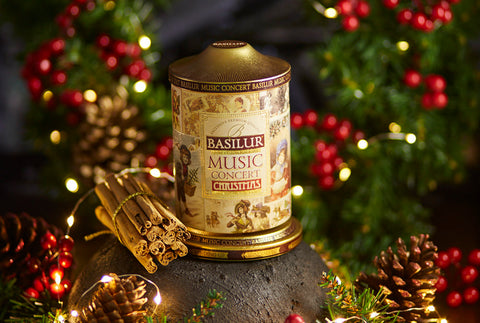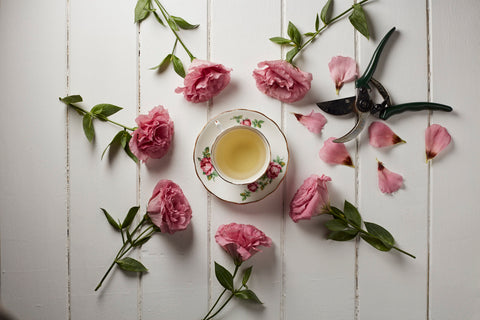Nuwara Eliya, nicknamed the “Little England” of Sri Lanka for its chilly climate and colonial style bungalows, is situated at an elevation of 1,868 m in the misty hills of central Sri Lanka. Nuwara Eliya’s European-style environment is a result of the city once being a retreat for colonial planters and high-society. Its location has bestowed Nuwara Eliya with textbook conditions for hillside Ceylon tea plantations!
Tea and Nuwara Eliya
Did you know that Nuwara Eliya was first appropriated for coffee plantations? However, once the Europeans properly discovered Nuwara Eliya and settled there, they caught on with the treasures of the luscious mountains of the area. After realising that the elevation in Nuwara Eliya was too high for coffee and the frequent rain damaged the coffee crops, the planters in Nuwara Eliya swayed towards tea plantations. As a result, since the early 1870’s, Nuwara Eliya began its journey towards becoming one of the prime tea growing districts on the Island. Nuwara Eliya is often known to bring the “champagne of teas”. Due to this, it is Sri Lanka’s best-known tea growing district and is the heart of the tea industry on the Island. The cool and bracing air and the moderate rainfall (except during the dry season from February to April) offers a unique climate that helps to produce tea that is considered as the finest tea in the world. Due to its unique, soft climate, Nuwara Eliya brings the lightest brew of Ceylon Teas with a delicate fragrance and a golden hue.

How tea is processed in Nuwara Eliya
When it comes to the processing of tea in Nuwara Eliya, there can be between two and seven procedures involved; the addition or exclusion of any of these stages results in a different type of tea. Each of these procedures are carried out in climate controlled facilities to avoid spoilage due to excess moisture and fluctuating temperatures. Here are the three main steps that a majority of the tea that comes from Nuwara Eliya goes through!
- Withering - Withering refers to the wilting of fresh green tea leaves. The purpose of withering is to reduce the moisture content in the leaves and to allow the flavor compounds to develop
- Fixing or “kill-green” refers to the process by which enzymatic browning of the wilted leaves is controlled through the application of heat. It is held that the longer it takes to fix the leaves, the more aromatic will be the tea. This procedure is carried out for green and yellow teas.
- Drying - Finally, all tea must be dried to remove any residual moisture and create a shelf-stable leaf. Again, the method of heating can dramatically change the flavor of the tea. This effect is most commonly seen with charcoal roasting, which imparts a distinctly rich quality to the flavor during this step.
After it’s dried, the tea is ready to be packaged and shipped all over the world. Using variations on these steps, a single leaf can be crafted into any type of tea. By remixing these steps in nontraditional ways, our team at Basilur is still coming up with new ways to make interesting teas with unique flavors!

Nuwara Eliya could quite easily be considered the tea capital of Sri Lanka and it has been said that ‘Nuwara Eliya is to Ceylon tea, what Champagne is to French wine’. Recognized by connoisseurs of tea as world’s best, the brew is light in colour yet, the cup will deliver a unique taste and aroma. The infusion in the cup is the lightest (palest) of all the types of Ceylon Tea, with a golden hue and a delicately fragrant flavour. Check out the range of Basilur Teas from Nuwara Eliya here.




Comments (0)
There are no comments for this article. Be the first one to leave a message!